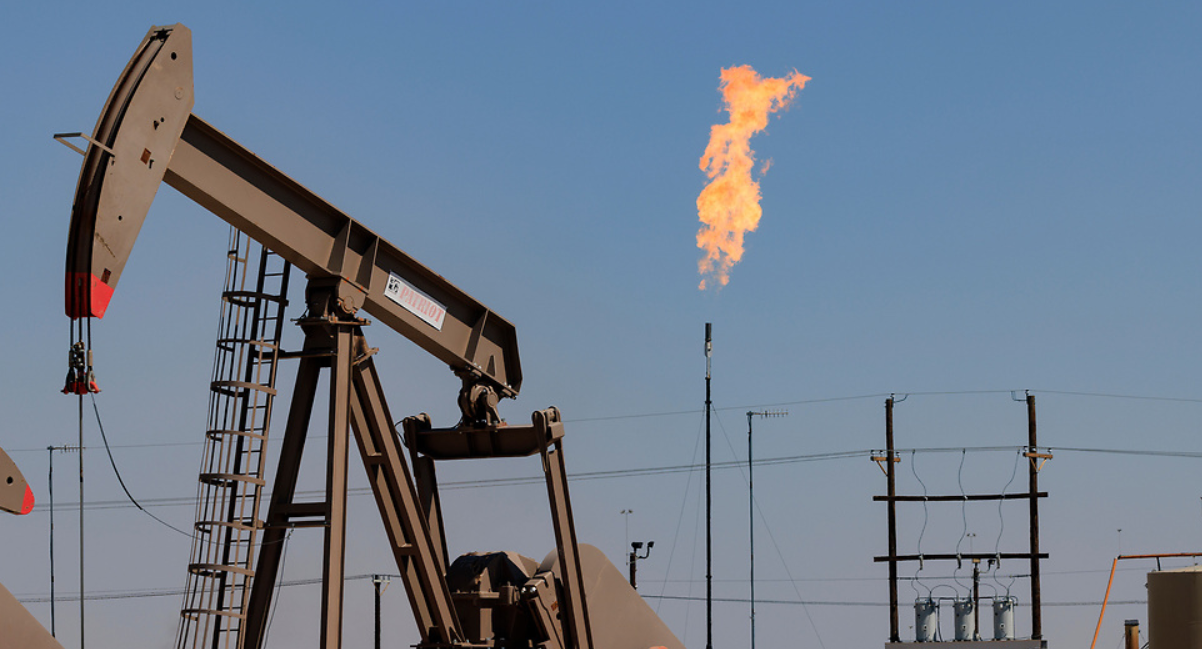
Tell the EPA: Stop methane from destroying our climate
Methane is one of the worst greenhouse gasses, and methane emissions are one of the biggest contributors to climate change.
Take Action
It’s a climate-destroying calculation: Oil and gas companies often find it cheaper to waste excess methane gas produced by their operations than to stop or prevent methane leaks in the first place.
For fossil fuel companies, wasting this potent greenhouse gas may be cheap, but the repercussions for our planet are costly.
Methane is up to 80 times more potent than carbon dioxide as a greenhouse gas in the short term, and it’s responsible for about a third of the warming from all greenhouse gases.
Because it’s so good at trapping heat in the atmosphere, methane gas has an outsized contribution to global warming.
Around 60% of the world’s methane emissions are produced by human activities — and fossil fuel production is one of the largest contributors to that total.
Oil and gas operations leak large amounts of this harmful pollutant into the air in a process known as “gas flaring” and “venting” — terms used to describe burning off the gas that comes out of the ground while drilling for oil.
If only a small quantity of natural gas comes up while drilling, oil and gas companies may not think it worthwhile to spend money on collecting it and then transporting it to market.
Instead, the gas is simply burned off.
In other cases, some oil and gas companies have found that it’s cheaper to let methane flare off than to make necessary upgrades to their equipment that prevent leaks.
The time to act on climate is now.
Scientists warn that our warming planet could be about to cross several dangerous climate “tipping points.” A tipping point is a seemingly stand-alone event — like an ice sheet collapse — that creates a feedback loop of further warming. Like a line of dominoes, once one part of our climate system fails, the rest could topple.
From collapsing ice sheets to dying coral reefs to the death of ecosystems like mangrove forests and seagrass beds — passing climate tipping points will leave no corner of our planet unscathed.
But it’s not too late to protect our planet and get warming under control.
Methane is a more potent greenhouse gas than carbon dioxide — but it doesn’t linger in the atmosphere as long. That means that cutting back on methane pollution now will have a strong and rapid effect on the progress of global warming.
Right now, we have a real chance to do just that.
For the first time ever, the Environmental Protection Agency (EPA) has proposed a fee on excess methane emissions that would require oil and natural gas companies to either stop producing excess pollution or pay up. Add your name to our petition to the EPA today.
As our planet's climate continues to shift ever closer to dangerous tipping points, controlling global warming pollution is more important than ever.
Take Action
Johanna directs strategy and staff for Environment America's energy campaigns at the local, state and national level. In her prior positions, she led the campaign to ban smoking in all Maryland workplaces, helped stop the construction of a new nuclear reactor on the shores of the Chesapeake Bay and helped build the support necessary to pass the EmPOWER Maryland Act, which set a goal of reducing the state’s per capita electricity use by 15 percent. She also currently serves on the board of Community Action Works. Johanna lives in Amherst, Massachusetts, with her family, where she enjoys growing dahlias, biking and the occasional game of goaltimate.
